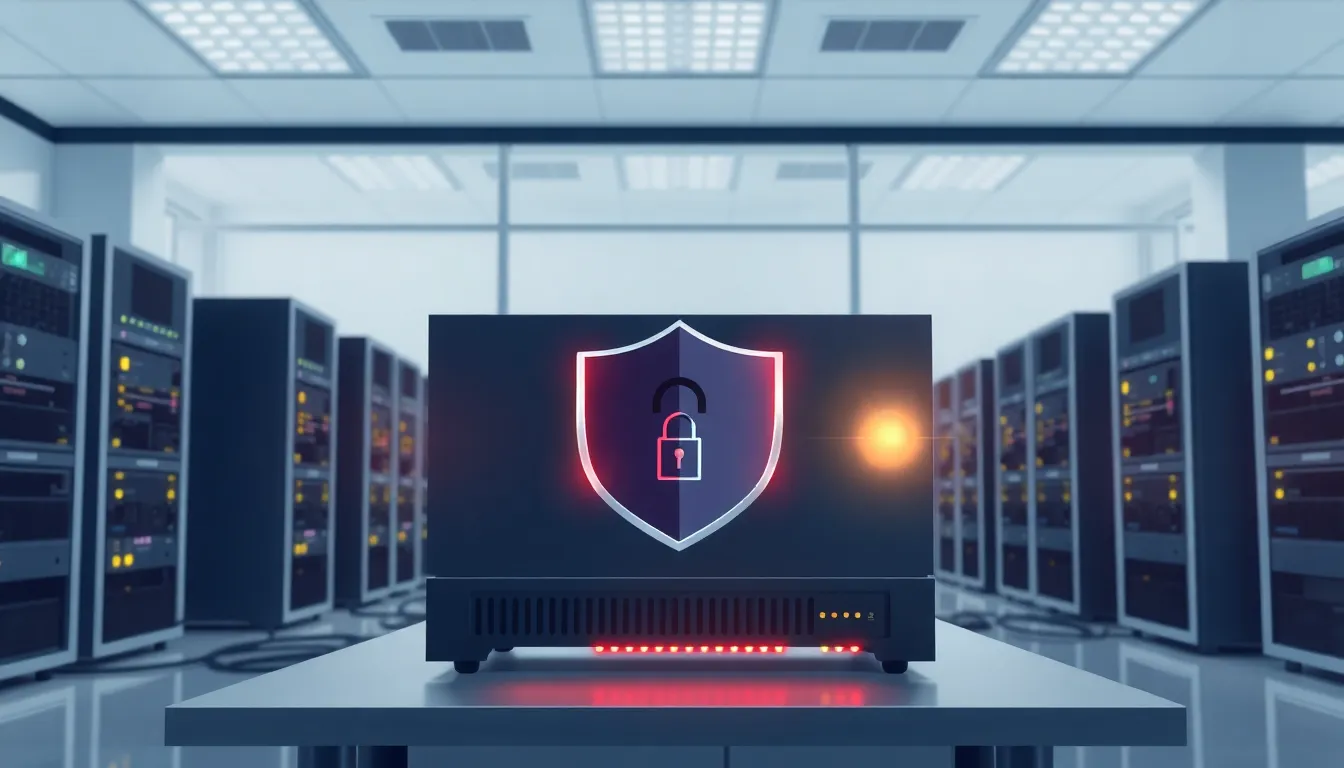In a world where cyber threats lurk around every digital corner, firewall security stands as the vigilant guardian of your online fortress. Think of it as the bouncer at an exclusive club, keeping out the riffraff while letting the VIPs in. Without it, your sensitive data might as well be a piñata at a birthday party—ripe for the picking by anyone with a stick.
But don’t let the seriousness of cybersecurity fool you; firewalls can be as entertaining as they are essential. They’re not just a wall; they’re your first line of defense against hackers, malware, and all those pesky digital gremlins. Dive into the world of firewall security and discover how this unsung hero can keep your data safe while you focus on what really matters—like debating whether pineapple belongs on pizza.
Table of Contents
ToggleUnderstanding Firewall Security
Firewall security focuses on creating a barrier between trusted internal networks and untrusted external networks. By implementing firewalls, organizations can safeguard sensitive information from cyber threats effectively.
What Is a Firewall?
A firewall acts as a security device that monitors and controls incoming and outgoing network traffic. It establishes a set of predefined rules that dictate which traffic is permitted or blocked. Many organizations use firewalls to secure their networks against unauthorized access, ensuring data integrity. For instance, a firewall can prevent unauthorized users from accessing a company’s internal systems, thus protecting confidential information.
Types of Firewalls
Various types of firewalls exist, each offering distinct features and functionalities. Packet-filtering firewalls inspect packets of data against a set of rules, making quick decisions based on header information. Stateful inspection firewalls maintain track of active connections, providing deeper insights into ongoing traffic. Application-layer firewalls operate at the application layer, analyzing data packets for specific applications. Next-generation firewalls combine multiple features, offering enhanced security measures such as intrusion prevention and deep packet inspection.
Importance of Firewall Security

Firewall security is vital for protecting sensitive data from increasing cyber threats. By establishing barriers between trusted internal networks and untrusted external networks, firewalls ensure that harmful intrusions are blocked.
Protecting Networks
Networks receive constant traffic from various sources. Firewalls monitor this traffic, applying predefined rules to determine what is permissible. Unauthorized access attempts are immediately halted, which maintains data integrity. This proactive approach prevents malicious software and hackers from causing significant harm. Effective firewall configurations enable organizations to manage risk, minimize vulnerabilities, and create a secure environment for valuable data.
Enhancing Compliance
Compliance with regulations often requires robust security measures. Many industries have specific requirements for protecting sensitive information, such as PCI DSS for payment processors and HIPAA for healthcare providers. Firewalls play a crucial role in meeting these compliance standards by providing logs and reports that demonstrate adherence to security policies. Regular monitoring and updates of firewall settings ensure that organizations remain aligned with evolving regulations. Integrating firewall security into overall risk management strategies leads to stronger compliance and a trustworthy reputation in the industry.
Evaluating Firewall Security Solutions
Evaluating firewall security solutions involves understanding their core attributes and identifying leading providers. Several aspects contribute significantly to a firewall’s effectiveness.
Key Features to Consider
When selecting a firewall, organizations should prioritize robust threat detection capabilities. Intrusion prevention systems, or IPS, enhance security by identifying and blocking potential threats in real time. Another essential feature is centralized management, which simplifies monitoring and managing multiple firewalls from a single interface. Additionally, flexible deployment options, including on-premises and cloud-based solutions, cater to diverse operational needs. Compliance support can ensure adherence to industry regulations, making audits simpler. Lastly, advanced reporting features offer insights into network security status and help identify trends over time.
Top Firewall Security Providers
Leading firewall security providers deliver comprehensive protection tailored to various needs. Palo Alto Networks stands out for its next-generation firewalls, incorporating AI for proactive threat management. Fortinet offers high-performance solutions with an emphasis on scalability and comprehensive threat protection. Check Point provides robust security measures along with seamless integration into existing IT infrastructures. Cisco stands recognized for its extensive network security offerings, including powerful firewalls and advanced threat intelligence. Sophos combines ease of use with effective malware prevention capabilities for small to medium-sized businesses. Each provider brings unique strengths to the table, making it essential to assess organizational requirements carefully.
Common Threats Mitigated by Firewalls
Firewalls play a crucial role in defending against various cyber threats, offering protection that enhances overall network security.
Malware and Intrusion Attacks
Malware attacks represent a significant risk where malicious software infiltrates systems to disrupt operations. Firewalls detect and prevent unauthorized access attempts that facilitate these intrusions. Tactics like phishing often aim to trick users into downloading harmful software. By blocking suspicious traffic, firewalls serve as an effective barrier against malware installation. Intrusion detection systems within firewalls enhance this defense, identifying patterns indicative of malicious activity. Regular updates bolster this proactive approach, ensuring firewalls adapt to emerging malware threats.
Data Exfiltration
Data exfiltration occurs when sensitive information is unlawfully transferred out of an organization. Firewalls prevent this by monitoring outgoing traffic, which helps identify unauthorized data transfers. Limiting access to sensitive data significantly reduces the risk of exfiltration efforts. Specific rules configured on firewalls can trigger alerts whenever unusual patterns are detected. Organizations gain valuable insights through logging and reporting features, making it easier to track attempted breaches. Firewalls also aid compliance with regulations like GDPR, which emphasizes the protection of personal data.
Firewall security is essential in today’s digital landscape. It acts as a critical line of defense against cyber threats while ensuring compliance with industry regulations. By effectively monitoring and controlling network traffic, firewalls protect sensitive data from unauthorized access and malicious attacks.
Choosing the right firewall solution involves understanding specific organizational needs and evaluating key features. With the right tools in place organizations can enhance their cybersecurity posture and maintain a trustworthy reputation. As cyber threats continue to evolve staying proactive with firewall security is not just a necessity but a strategic advantage.



